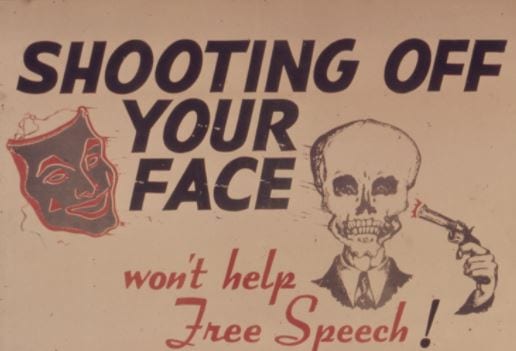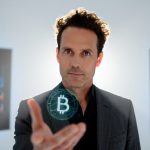
Why Is Freedom of Speech Important? It’s the Invaluable Right Granted to Us All
Oct 30, 2023
Introduction
In civil liberties, few principles hold as much significance and power as freedom of speech. It is a cornerstone of democratic societies, empowering individuals to express their thoughts, opinions, and ideas without fear of censorship or persecution. However, the importance of freedom of speech extends beyond its legal and constitutional dimensions. It is a fundamental human right that enables progress, fosters diversity, and safeguards democracy.
This captivating article delves into the profound significance of freedom of speech, employing a mass psychology and contrarian approach to engage readers with excitement and elegance. By integrating the keyword “Why Freedom of Speech Important” and “Freedom of speech” into subtitles and text, this article explores the latest data available to highlight the enduring relevance and necessity of embracing freedom of speech as our birthright.
The Power of Expression
In a world that often seeks to stifle individuality and suppress dissent, freedom of speech stands as a powerful force that empowers individuals to express their true selves and share their ideas openly. The ability to communicate freely has a profound impact on the human psyche, fostering personal growth, self-empowerment, and the development of critical thinking skills.
When individuals have the freedom to express themselves without fear of retribution or censorship, they are more likely to explore their own thoughts and beliefs. This process of self-expression allows individuals to better understand themselves, their values, and their place in the world. It provides an avenue for introspection and self-discovery, enabling individuals to forge a stronger sense of identity and purpose.
Moreover, freedom of speech promotes self-empowerment. When individuals can voice their opinions and have their voices heard, they gain a sense of agency and control over their lives. This empowerment is not limited to the individual; it extends to the broader society. When people are empowered to speak their minds, they become active participants in shaping the world around them, contributing to the collective decision-making process and influencing societal norms.
Critical thinking is another skill that is nurtured by freedom of speech. When individuals are encouraged to express their ideas and engage in open dialogue, they are exposed to various perspectives and opinions. This exposure challenges their own beliefs and encourages them to think critically about the world they inhabit. By exchanging ideas, individuals can analyze information, evaluate arguments, and form independent judgments. Critical thinking is essential for informed decision-making, problem-solving, and the advancement of knowledge.
Furthermore, freedom of speech cultivates a society that values diversity and encourages intellectual exploration. When individuals are free to express their thoughts and ideas, it creates a vibrant marketplace of ideas where different perspectives can coexist and interact. This diversity of thought leads to intellectual growth, innovation, and the advancement of society as a whole. It encourages individuals to seek out new knowledge, engage in meaningful conversations, and challenge conventional wisdom.
Fueling Progress and Innovation
At the heart of progress and innovation lies the free exchange of ideas and opinions, made possible by the fundamental principle of freedom of speech. Encouraging individuals to challenge existing norms, question authority, and express their unique perspectives creates an environment ripe for creativity and intellectual exploration. The transformative power of freedom of speech can be observed across various domains, including technology, science, social reforms, and cultural evolution.
The unrestricted flow of ideas often fuels technological advancements. Innovation thrives in an environment where individuals can share their insights, experiment with new concepts, and collaborate. Silicon Valley, a hotbed of technological innovation, owes much of its success to the culture of free expression and exchanging ideas. Entrepreneurs, engineers, and visionaries unite to challenge the status quo, explore unconventional solutions, and push the boundaries of what is possible.
Scientific progress also relies heavily on freedom of speech. The scientific method is built upon observation, experimentation, and the open sharing of findings. The peer review process, a cornerstone of scientific research, depends on the ability of scientists to critique and challenge each other’s work freely. By subjecting ideas to rigorous scrutiny, the scientific community can refine theories, uncover new knowledge, and propel advancements in medicine, technology, and other fields.
Freedom of speech has been vital in driving societal development and social reforms. Throughout history, through the expression of dissenting voices, societies have been able to challenge oppressive systems, fight for civil rights, and effect meaningful change. Figures such as Martin Luther King Jr., Nelson Mandela, and Malala Yousafzai have used the power of their words to inspire movements, advocate for justice, and bring about social progress. Without the freedom to speak out against injustice, these transformative social movements would not have been possible.
The free exchange of ideas also propels cultural evolution. Art, literature, music, and other forms of creative expression thrive in environments where individuals are free to explore and challenge societal norms. Artists and thinkers throughout history have used their voices to push boundaries, challenge conventions, and provoke thought. Their works have challenged societal norms, reshaped cultural perspectives, and ignited new movements. Freedom of speech enables cultural diversity and the preservation of cultural heritage, fostering a rich tapestry of ideas and expressions.
The transformative power of freedom of speech is not just anecdotal; it can be substantiated through empirical evidence. Studies have shown that societies with greater freedom of speech tend to have higher levels of innovation, economic growth, and societal development. Research has also demonstrated the positive correlation between freedom of speech and indicators of societal well-being, such as education, democratic governance, and human rights.
Safeguarding Democracy
The protection of freedom of speech is vital for the preservation and functioning of a healthy democracy. It serves as a cornerstone of democratic principles, allowing individuals to express dissenting views, engage in political discourse, and hold those in power accountable. The interplay between freedom of speech and democracy is crucial, as it ensures a vibrant public sphere, the protection of minority rights, and the prevention of authoritarianism.
A robust democracy relies on a vibrant public sphere where citizens can freely express their opinions, debate ideas, and participate in political discussions. Freedom of speech enables individuals to voice their concerns, advocate for their interests, and contribute to the democratic decision-making. It allows for the open exchange of diverse viewpoints, essential for reaching informed and balanced decisions. Without freedom of speech, the public sphere would be stifled, leading to a lack of engagement, a narrowing of perspectives, and a diminished democracy.
Furthermore, freedom of speech plays a crucial role in safeguarding the rights of marginalized and minority groups. Inclusive democracies strive to protect the rights and interests of all citizens, regardless of their background, beliefs, or social status. Freedom of speech allows marginalized voices to be heard, empowering individuals and groups to challenge systemic injustices and advocate for change. It provides a platform for underrepresented communities to express their concerns, share their experiences, and mobilize for social progress. By limiting freedom of speech, marginalized voices are silenced, perpetuating inequalities and hindering the democratic ideal of equal representation and participation.
The erosion of freedom of speech poses a significant risk to democratic institutions. History has demonstrated that when freedom of speech is curtailed, democratic societies become vulnerable to authoritarianism and the concentration of power. Authoritarian regimes often seek to control the narrative and suppress dissenting voices, stifling political opposition and undermining democratic norms. By limiting freedom of speech, governments can manipulate information, silence critics, and create an environment of fear and self-censorship. The erosion of freedom of speech weakens the checks and balances necessary for a healthy democracy, paving the way for authoritarian control and the erosion of democratic institutions.
Contemporary events illustrate the importance of freedom of speech in safeguarding democracy. The rise of misinformation and fake news has highlighted the need for a well-informed citizenry and the ability to evaluate information critically. In a democratic society, freedom of speech allows for the exposure and debunking of false narratives, promoting transparency and accountability. It empowers citizens to seek out diverse sources of information, engage in fact-checking, and make informed decisions. Without freedom of speech, citizens are susceptible to manipulation, disinformation, and the erosion of trust in democratic institutions.
It is important to recognize that freedom of speech is not absolute and should be balanced with other democratic values, such as the protection of individual rights and public safety. Hate speech, incitement to violence, and defamation can undermine social cohesion and harm individuals or communities. However, any restrictions on freedom of speech should be narrowly defined, proportionate, and subject to judicial review. It is the role of democratic societies to strike a balance between protecting individual rights and ensuring the free exchange of ideas that is essential for the functioning of democracy.
Overcoming Challenges and Misconceptions
While freedom of speech is a fundamental right, it is not without challenges and misconceptions. Critics argue that unrestricted speech can spread hate speech, disinformation, and harm to individuals and communities. It is essential to address these concerns and explore potential solutions to mitigate the negative impacts while upholding the principles of freedom of speech.
Hate speech is often cited as a limitation of unrestricted speech. It perpetuates discrimination, incites violence, and undermines social cohesion. While it is crucial to protect individuals from harm, it is also essential to balance this with freedom of speech. One potential solution is implementing legal frameworks that clearly define hate speech and establish appropriate restrictions. By setting clear boundaries, societies can protect vulnerable individuals and communities while allowing for robust public discourse.
Disinformation and fake news present another challenge in the digital age. The rapid spread of false information can undermine trust in institutions, manipulate public opinion, and harm democratic processes. Addressing this challenge requires a multifaceted approach. Media literacy programs can equip individuals with critical thinking skills to evaluate information sources and distinguish between reliable and unreliable news. Fact-checking organizations play a crucial role in verifying information and debunking falsehoods. Social media platforms can also implement measures to combat the spread of disinformation, such as algorithmic changes and content moderation policies.
A balanced approach to freedom of speech necessitates responsible discourse. While individuals have the right to express their opinions, they also have a responsibility to do so in a manner that respects the dignity and rights of others. Encouraging civil and respectful public debate can foster a culture of open dialogue while minimizing harm. Constructive engagement, active listening, and empathy are key components of responsible discourse.
It is important to acknowledge that the limitations of freedom of speech should be carefully considered and well-defined to avoid abuse and ensure a fair and inclusive society. Restrictions on speech should be narrowly tailored, proportionate, and subject to legal oversight to prevent arbitrary suppression of dissenting voices. The role of an independent judiciary is crucial in striking the right balance between protecting individuals from harm and upholding the principles of freedom of speech.
The Digital Revolution and Freedom of Speech
The digital revolution has brought unprecedented opportunities and challenges for freedom of speech. The internet and social media platforms have provided individuals with powerful tools to express their opinions, connect with others, and engage in public discourse. However, this newfound digital freedom has also given rise to various challenges that need to be addressed to ensure the integrity and inclusivity of free expression.
One of the challenges associated with the digital age is online harassment and the spread of hate speech. The anonymity and distance provided by the internet can encourage individuals to engage in abusive behaviour and target others with harmful speech. Addressing this issue requires a multi-faceted approach, including robust community guidelines, content moderation policies by social media platforms, and legal frameworks that hold individuals accountable for their online actions. Encouraging digital literacy and promoting empathy and respect in online interactions are essential in creating a safer and more inclusive digital environment.
Another significant challenge is the spread of disinformation and fake news. Rapidly disseminating false information through social media platforms can harm public discourse and democratic processes. A combination of media literacy programs, fact-checking initiatives, and responsible platform policies is necessary to combat this issue. Additionally, collaboration between technology companies, governments, and civil society organizations can help develop innovative solutions to address the spread of disinformation and promote the disseminating of accurate and reliable information.
The concentration of power in the hands of tech giants is another concern in the digital age. A few platforms dominate the online space, controlling the flow of information and setting the rules for online speech. This concentration of power raises questions about the influence and accountability of these platforms. Balancing freedom of speech with the need for responsible platform governance requires transparent decision-making processes, meaningful user participation, and external oversight mechanisms. Encouraging competition and supporting alternative platforms can also help mitigate the risks associated with the concentration of power.
It is important to note that addressing the challenges posed by the digital revolution should not come at the cost of restricting freedom of speech. A balanced approach is needed to uphold the principles of free expression while addressing the unique challenges of the digital age. This approach involves collaboration between governments, technology companies, civil society organizations, and individuals. It requires continuous dialogue, innovation, and adaptation to ensure that the benefits of the digital revolution are harnessed while minimizing its adverse impacts on freedom of speech.
Conclusion
In conclusion, freedom of speech is a fundamental right that plays a crucial role in the development and functioning of our society. It catalyzes personal growth, societal progress, and the protection of democratic ideals. Freedom of speech fosters intellectual diversity and encourages the exploration of new ideas by allowing individuals to express their thoughts, engage in public discourse, and challenge prevailing norms. It empowers marginalized voices, promotes social justice, and holds those in power accountable.
Moreover, freedom of speech is essential in safeguarding democracy. It ensures a vibrant public sphere where citizens can participate in political discussions, make informed decisions, and hold their elected representatives accountable. The protection of minority rights and the prevention of authoritarian control are intricately linked to the preservation of freedom of speech. By providing a platform for dissent and critical inquiry, freedom of speech acts as a safeguard against the erosion of democratic institutions and the concentration of power.
The digital age has brought new challenges and opportunities for freedom of speech. While the internet and social media platforms have expanded avenues for expression, they have also given rise to issues such as online harassment, the spread of disinformation, and the concentration of power in the hands of a few tech giants. Addressing these challenges requires a balanced approach that upholds freedom of speech while implementing measures to mitigate harm, ensure accountability, and promote responsible platform governance.
As we navigate the complexities of the modern world, we must recognize the enduring relevance and necessity of freedom of speech. Embracing it as our birthright allows us to cultivate a society that values diversity, encourages critical thinking, and fosters constructive dialogue. By upholding and defending freedom of speech, we contribute to the advancement of human rights, the protection of democracy, and the pursuit of a more just and inclusive society.
Intriguing Reads Worth Your Attention
Masses Think Fiat Is Real Money and That’s The Problem (Oct 9)










